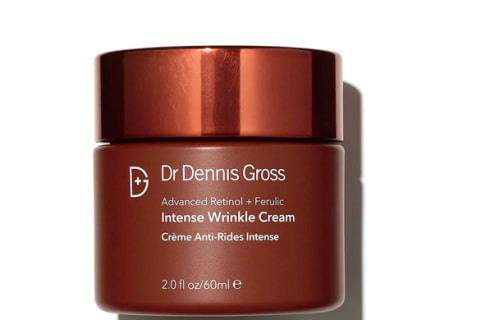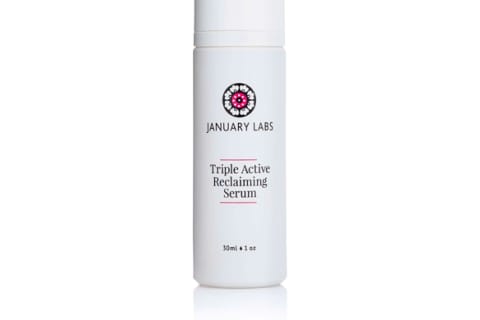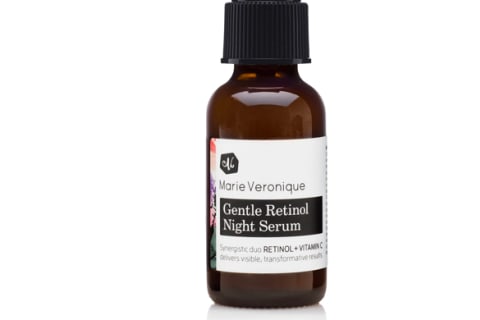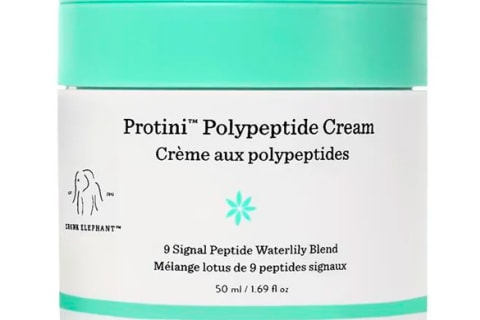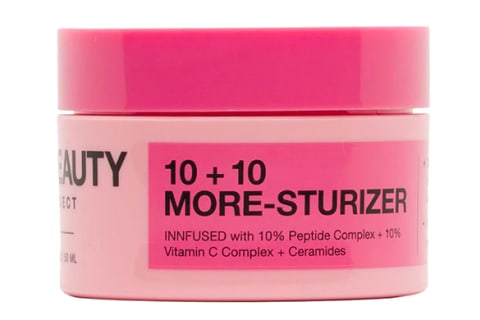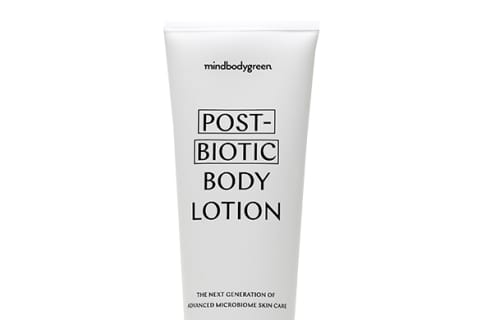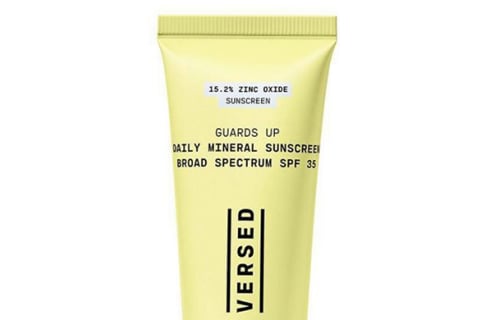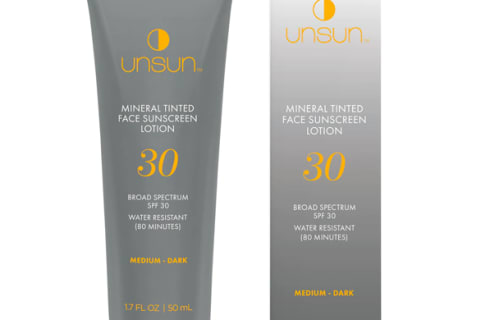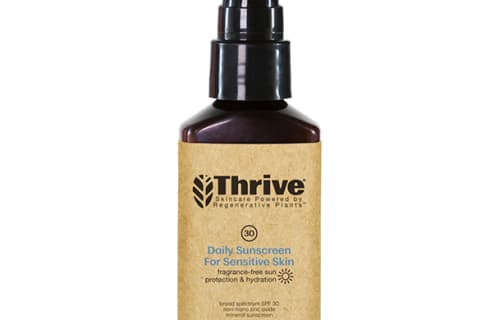Advertisement
How To Reverse Skin Aging: 9 Science-Backed & Expert-Approved Tips

There's a lot to look forward to when it comes to aging. There's wisdom, knowledge, perspective, and a clearer sense of self that can only come with time. In fact, according to a Harris Poll study, adults pretty much agreed that 50 is the so-called perfect age.
With that being said, there's no denying that aging can be scary. With all the changes our bodies go through as we get older, aging isn't always smooth sailing. Especially when it comes to the physical signs of aging such as fine lines, wrinkles, and overall dullness. But that doesn't mean we should feel hopeless! With the help of a healthy lifestyle, a beneficial skin care routine, and good habits, you can help your body through the aging process. You can even slow it down to the point that it looks like you're reversing the physical signs of aging. Here, how to promote skin longevity naturally:
Add a retinol to your regular skin care routine.
When it comes to physical signs of aging, skin care is an easy, productive place to start. "It's never too late to begin a healthy aging skin care regimen, but I advise getting started by the age of 30," says The A Method dermatologist Tina Alster, M.D. "This is when collagen production naturally begins to slow down—even in those with perfectly healthy skin. The aging process can take place sooner in unhealthy skin or skin subjected to consistent stressors like pollutants and sun exposure."
So whether you're prepping for your aging skin or ready to combat its effort, there's no topical ingredient more powerful than retinol. Retinol is a compound derived from vitamin A that addresses almost every skin care issue that comes with aging skin. It promotes collagen production to smooth out fine lines and wrinkles, enhances cell turnover to improve skin's brightness, and eases signs of sun exposure for an all-around healthier, youthful complexion.
"Consistent use of topical ingredients such as retinol will help the skin synthesize collagen fibers and improve its elasticity," says Alster. "In turn, the skin's renewal cycles are enhanced and the skin appears more youthful and fresh."
Incorporate peptides into your skin care routine.
Retinol isn't the only healthy aging skin care ingredient that delivers serious results. Peptides also have impressive rejuvenating skin care benefits such as supporting collagen production, improving skin's texture, and strengthening the skin's barrier to protect against harmful environmental stressors that speed up signs of aging.
How can peptides help topically? Well, peptides are chains of amino acids linked together by peptide bonds that are naturally present in the body. When they're used topically, they can act as messengers for the skin to help it improve itself. The ingredients can even signal to the skin to promote collagen production.
Get regular rejuvenating facials.
At-home skin care is a great place to start when it comes to keeping up with a skin care routine. But if you're looking for a little extra help, certain facials can really go a long way. There are microcurrent facials, which work with the skin and muscles in your face to lift and sculpt via a noninvasive treatment.
Then there are LED treatments, particularly red light therapy, which stimulates collagen production to reduce the fine lines and wrinkles. A 2014 study found that people receiving red light therapy on their face twice a week for 15 weeks saw an improvement in skin tone1, texture, and smoothness.
Don't forget daily sunscreen.
Nothing ages the skin more than UV rays from the sun. Studies have shown that 80% of visible facial aging signs2 are due to UV exposure. This includes dark spots and a breakdown in collagen production, leading to fine lines and wrinkles. "People should avoid skipping daily application of sunscreen," Alster says. "Sun protection is the single most important factor in preventing signs of skin aging."
The American Academy of Dermatology recommends wearing broad-spectrum protection with SPF 30 or higher in a water-resistant formula, which should be applied daily.
A couple of daily sunscreens we love are Versed Guards Up Daily Mineral Sunscreen, Unsun Mineral Tinted Face Sunscreen, and Thrive Natural Skin Care Daily Sunscreen For Sensitive Skin.
Try a healthy aging supplement.
If you're looking to go beyond topical treatments, supplements are a way to help further optimize skin health.* After all, healthy skin starts from the inside! You want to support your body by giving it all the right nutrients and bioactives that it needs.
There are several key nutrients, phytonutrients, and specialized bioactives that support your skin, hair, and overall health as you age—so your body not only feels young but looks and acts younger, too.* This full guide on "anti-aging supplements" will break down exactly what to look for if you're interested in adding them to your routine.
When it comes to improving your complexion, there are supplements that target mature texture and tone thanks to a mixture of phytonutrients and antioxidants: Our go-to is mindbodygreen best skin+, which supports a healthy complexion by preserving the collagen layer, improving natural moisture levels, neutralizing free radicals, and promoting cellular rejuvenation.*
Season your food with sea salt.
As previously stated, a healthy, youthful appearance starts from within. So it's no surprise that too much salt can dry out the skin, making it appear older with more fine lines, wrinkles, and overall dullness. Luckily, not all salt is created equal.
Board-certified naturopathic physician and weight-loss and anti-aging expert Kellyann Petrucci, N.D., tells us that regular salt pulls water out of our cells, leaving them prone to promoting wrinkles. Sea salt, on the other hand, is filled with potassium, which pulls water into the cells to make them firm.
She recommends unrefined Celtic sea salt and pink Himalayan salt. "These unrefined mineral salts have no toxic additives," Petrucci explains. "Mineral salts also contain smaller amounts of sodium and chloride than table salt. Better yet, they boast more than 80 minerals—silica, potassium, magnesium, sulfur, and calcium being just a few—that energize your cells and help make you beautiful."
Consume foods (and supplements!) rich in omega-3s.
The link between omega-3s and skin health is well documented. In fact, experts routinely recommend increasing fatty-acid intake to help improve and protect the skin.* Omega-3s are a type of polyunsaturated fatty acid primarily found in higher-fat fish such as salmon, anchovies, herring, sardines, mackerel, and albacore tuna.
So how exactly do they benefit the skin? Well, according to Petrucci, they plump up the walls of the skin's cells, making them bouncy (aka youthful) again.* A 2011 study found that people who use omega-3 supplements with omega-3 topical ingredients improved their overall skin health3, more so than those who just used topical treatments.* And a comprehensive review of 38 studies found that omega-3 supplements help balance and resolve the skin's inflammatory response4.*
Cut back on sugar.
We must always look at our diets as a pillar of healthy skin—what we consume has a direct effect on what our complexion looks like. And for youthful, firm-looking skin, one ingredient can be particularly troublesome: Sugar can be tough on collagen. "High sugar levels can lead to hardening and fragmentation of collagen, weakening the skin foundation and promoting premature skin aging," board-certified dermatologist Joshua Zeichner, M.D., previously told mbg about reasons collagen declines. Plus, diets with high sugar content can put the body in oxidative stress, which can then interfere with the skin's ability to heal itself, leading to a dull, lackluster complexion.
Reduce stress (or at least try!).
We've come to learn that stress can seriously do a number on the skin. Not only can it make you look tired by making skin appear duller, but it also affects collagen production. Essentially what happens is that when you get stressed, your body goes into fight-or-flight mode, diverting more circulation to more essential organs such as the heart, brain, and lungs. This, in turn, takes away blood flow from the skin, so it cannot appear its plumpest, brightest, most youthful self.
"Take control over your stress," Petrucci urges. "If possible, reduce your commitments. Ask yourself which obligations are the least meaningful to you, and free yourself from them. Be ruthless about this." Stress cannot always be avoided, but there are natural ways to remedy it such as exercise, meditation, breathwork, and journaling, along with personal commitments.
